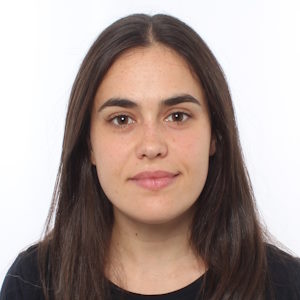DeLuca Virtual Symposium
“Neural Interfaces for the Control of Robotic Limbs”
June 12, 4:00pm CEDT, 10:00am EDT, 11:00pm JDT
The ISEK Early Career Researcher Committee is pleased to announce the second edition of the DeLuca Symposium, a virtual event highlighting research from senior and early-/mid-career scientists on topics of interest to trainees, from undergraduate students to early-career researchers.
Neural interfaces are systems that allow patients to control computers or robotic limbs using neural activity. These interfaces often combine recording technologies-such as electromyography-with decoding algorithms that translate motor intent into machine-interpretable commands. Despite promising advances, current neural interfaces remain largely inaccessible to patients, often lack robustness, and demand sustained cognitive effort to produce a limited range of commands.
In this symposium, we will showcase recent work by researchers and clinicians on topics including spike sorting and neural decoding algorithms, control paradigms for robotic limbs, neural plasticity associated with the use of these tools, and clinical strategies for training patients to use their robotic limbs effectively.
The DeLuca Symposium is lead by the 2024 Carlo J. DeLuca Award winner Simon Avrillon with support from the Communications Committee.
Registration is FREE but attendees must register to participate.

Irene Mendez Guerra
Imperial College London
Title: Motor unit decoding for neural interfacing
Abstract: The nervous system ultimately translates movement intent into motor unit firings to drive muscle contractions. Advances in recording hardware and signal processing techniques over the last decades, have enabled the identification of individual motor units from electromyographic signals, opening new possibilities for neural interfacing. At the same time, these applications introduce challenges for decoding algorithms. This talk will present the principles of motor unit decoding using blind source separation, share practical guidelines, and highlight recent approaches designed to address some of these challenges from a neural interfacing perspective.
Speaker Biography
Dr. Irene Mendez Guerra is an Eric and Wendy Schmidt AI in Science Postdoctoral Fellow at the Department of Bioengineering, at Imperial College London, where she researches neural control of movement at the peripheral level using AI models. After earning her PhD in wearable neural interfaces from Imperial College London in 2024, Dr. Mendez Guerra was awarded the EPSRC Doctoral Prize Fellowship. Apart from her academic endeavours, Dr. Mendez Guerra also carried out a research internship at Meta in 2022, and was the leader of Imperial’s Arm team in the Cybathlon 2020 competition. Her research combines signal processing, machine learning, and electrophysiology to develop novel neural decoding algorithms, human-machine interfaces, and physiological models.

Hunter Schone
University of Pittsburgh
Title: Technological embodiment: transitioning phantoms into bionics
Summary: Biomimetic prosthetic limbs-designed to resemble and operate like the biological body-are a longstanding goal in neural engineering. Biomimetic design is built on the (untested) assumption that biomimetic devices might allow users to access and recycle neural resources that support the biological body to assist artificial device control. This talk will examine the feasibility of this “technological embodiment” framework through a series of studies. Using longitudinal fMRI, I will first assess the availability and stability of cortical body representations in patients with planned amputation surgeries by scanning them before and up to 5 years post-amputation. With an understanding of the cortical representations that exist after amputation to support prosthetic limb control, I next will evaluate the benefits and limitations of biomimetic-inspired control strategies during training with an EMG pattern recognition-controlled bionic hand. Together, these findings offer insight into the neuroplastic potential-and boundaries-of biomimetic approaches to prosthetic limb control.
Speaker Biography
Dr. Hunter Schone, PhD, is a postdoctoral research fellow within Rehab Neural Engineering Labs at the University of Pittsburgh, researching the capacity for brain plasticity in the adult brain to support controlling next-generation assistive technologies (myoelectric prosthetics and brain-computer interfaces). Dr. Schone obtained his MSc and PhD between University College London and the National Institutes of Health.

Agnes Sturma
University of Applied Sciences Campus Vienna
Title: Prosthetic control from a rehabilitation perspective
Summary: Individuals with limb loss can choose between cosmetic, mechanical, and myoelectric prostheses as standard fitting options. For all active prostheses, rehabilitation is essential to help users establish reliable control of their device and effectively integrate it into daily life. This also applies to more innovative approaches such as Targeted Muscle Reinnervation (TMR), which entail specific rehabilitation requirements. This talk will summarize both standard and advanced prosthetic fitting options used in clinical practice, along with their respective implications from medical and rehabilitation perspectives.
Speaker Biography
Dr. Sturma is Head of Physiotherapy at the University of Applied Sciences Campus Vienna. She has a Bachelor Degree in Physiotherapy, a Master ‘s Degree in Health Assisting Engineering and a Doctoral Degree in Applied Medical Sciences/Clinical Neuroscience. She has been working at the Medical University of Vienna since 2012. There, she is involved in rehabilitation and research projects with individuals with upper limb loss, nerve injuries or central nervous disorders.
